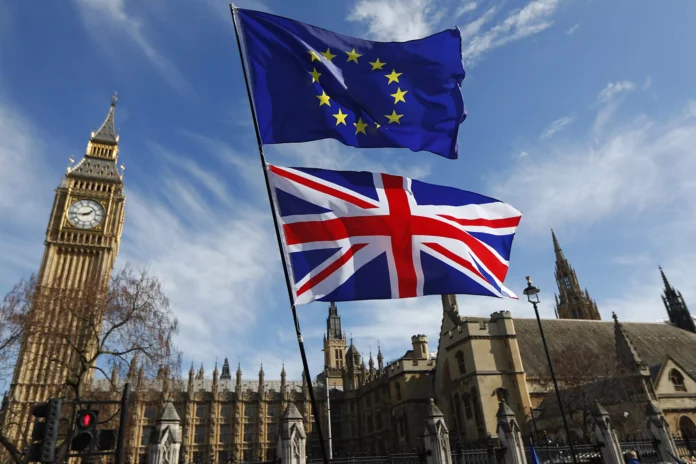British Finance Minister Tulip Siddiq confirmed the country spent £24 billion on leaving the European Union alone and stands to pay around £6.4 billion more to the bloc to settle existing financial obligations, prompting pressure on Prime Minister Keir Starmer, according to The Independent.
As Starmer embarks on a much-touted “reset” of relations with Brussels amid claims of the country’s Brexit spending, some activists responded with fury, calling on the Prime Minister to reverse the damage caused by Brexit by forging closer ties with Europe.
SNP MP Stephen Gethins, who submitted the written question, said:
“Brexit has been disastrous for the UK economy and wider society. It takes away rights and opportunities that my generation took for granted, makes it more difficult for businesses, and we are paying heavily for the privilege of being outside the world’s largest single market. There is no path to growth or economic success outside the EU, and as these figures show, we are still paying for the mistakes of a hard Tory Brexit nobody voted for. Given this, it astonishes me that Sir Keir is pursuing a hard Tory Brexit that deprives public services of badly needed funds at a time when Labour continue to pursue a Tory austerity agenda.”
The staggering £24 billion figure comes at a time when the Chancellor Rachel Reeves is seeking to raise funds to plug a £22 billion black hole in the British finances after warning ministers that tough decisions on spending, welfare and tax lie ahead for the UK.
Starmer has frequently voiced his desire to rebuild ties with the bloc after years of discord under consecutive Tory governments. He paid his first visit to Brussels this month since becoming prime minister to meet European Union leaders, with further talks scheduled for the autumn and early next year. A youth mobility scheme to enable young people to work and travel across the EU, as well as access to British fishing waters, will be part of the ongoing discussions.
“It’s encouraging to see more data being shared about the cost of the UK’s exit from the EU. However, we remain in the dark about the full extent of the impact of leaving the EU and its repercussions on areas such as the economy, the NHS, the cost of living and UK businesses, to name just a few. We need an independent, forward-looking inquiry on the UK’s relationship with Europe to identify those opportunities and rebuild those closer bonds,” according to Deputy chief executive of campaign group the European Movement Emma Knaggs.
The Resolution Foundation think tank warned that despite successful negotiations, Starmer is still not fully open to a full level of talks because of his red lines on the single market and customs union. A report published this month said the prime minister had already ruled out the biggest potential stimulus to the UK economy. Sophie Hale, think tank economist, said:
“Britain’s strained trading relations with the EU have caused major economic damage in recent years, so a reset certainly has the potential to boost growth. But it will take more than friendlier meetings and a few small-scale tweaks for farmers and touring musicians to shift the economic dial. Instead, the government will need to strategically approach where it prioritises closer alignment.”
“Exiting the European Union not only cost the UK vast amounts of money, but economic growth, opportunities for young people, influence on the world stage, and much more. But this government has the opportunity to reverse that downwards trend, building on a strong start to bring us closer to the EU through policies like beneficial alignment and a reciprocal youth mobility scheme,” according to Best for Britain chief executive Naomi Smith.
